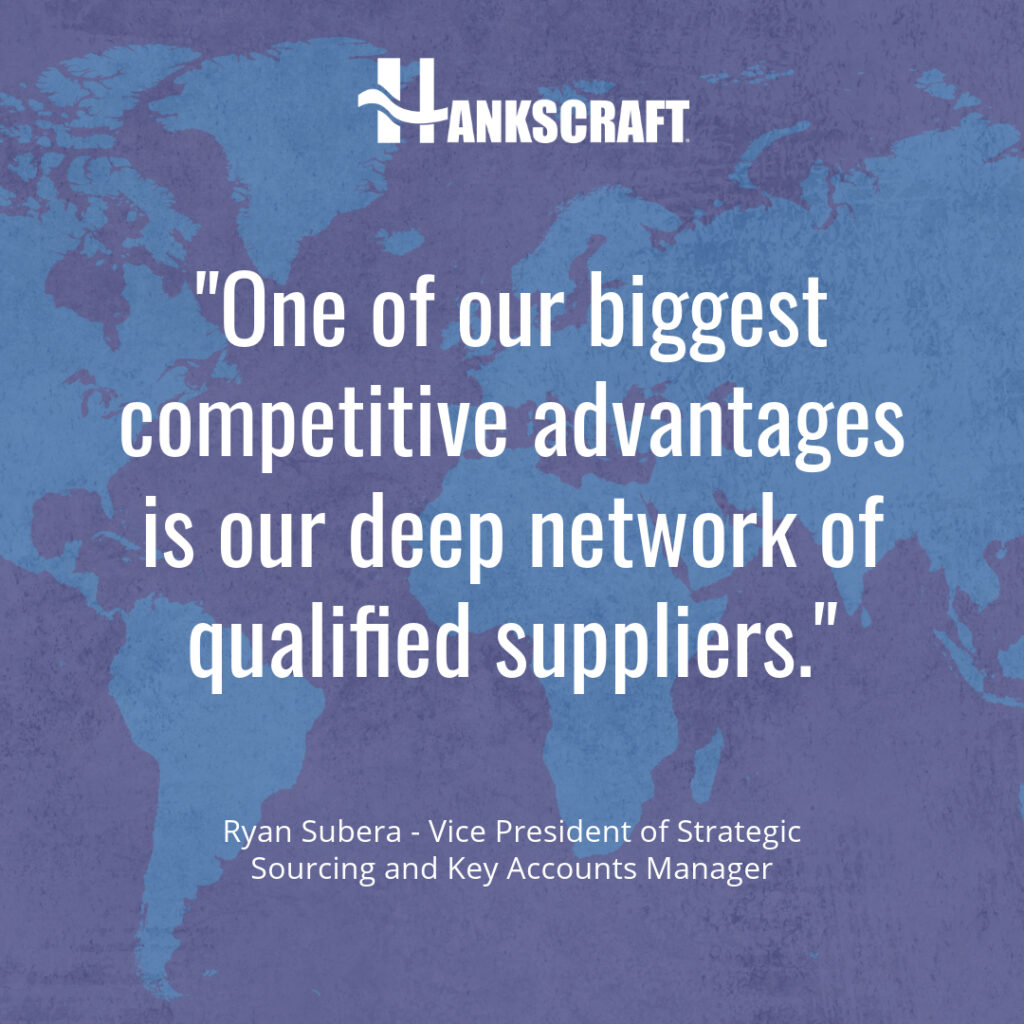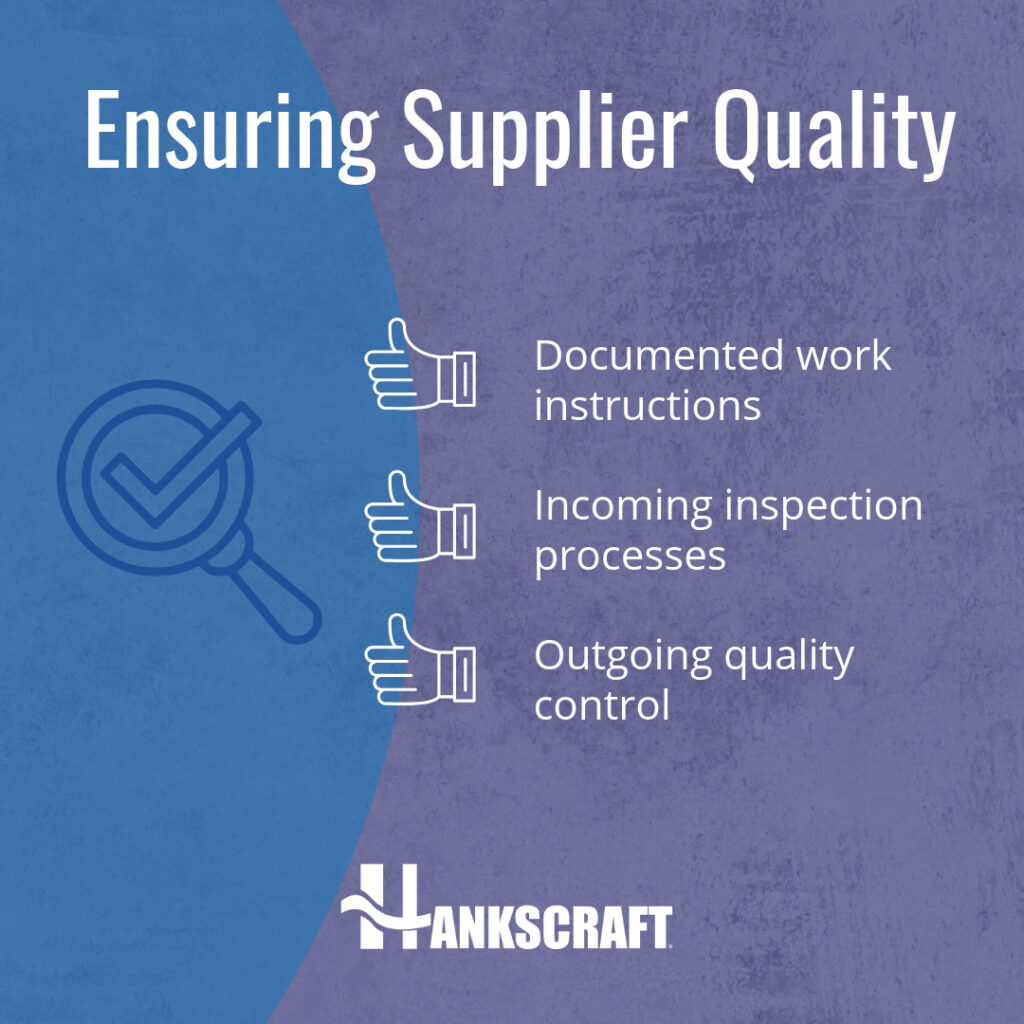Reedsburg, Wis (July 17, 2025) – Hankscraft Inc. is positioning itself and its customers for long-term success in an evolving global sourcing environment by creating a new executive leadership role, Vice President of Strategic Sourcing and Key Accounts Manager, filled by long-time engineering and operations leader Ryan Subera.
With more than 20 years at the company and operational experience in both the U.S. and China, Ryan leads the ongoing expansion of Hankscraft’s supplier base for its three business units, Contract Manufacturing, Water Treatment, and Tap Handle & Point-of-Purchase.
Diversifying the Supply Chain
More than ever, manufacturers must constantly re-evaluate their supply chain. Hankscraft is a key partner for its customers, managing customers’ supply chains in a rapidly evolving environment. “We are seeing pressure on China and other Asian production hubs to migrate business to the U.S. and other low tariff markets,” said Ryan. “Our China facility may not be the right fit for all our customers, which is why we continue to build a diverse supplier network all over the world.”
With Hankscraft’s wide range of products—from plastic assemblies to electromechanical devices and water treatment systems—diversifying sourcing isn’t just a nice-to-have; it’s essential.
Ryan is uniquely equipped for this role because of his deep understanding of product engineering, materials, the processes required to make a successful product, along with his operational experience both at Hankscraft’s manufacturing facility in the U.S. and China. “Our team performs due diligence to qualify suppliers by visiting them in-person to inspect their manufacturing processes and control,” said Ryan

Geographical Considerations for Manufacturing
There has been a frenzy of activity to relocate manufacturing due to cost considerations. However, some regions are more specialized than others for certain materials or processes in manufacturing. “Everybody is going through a quoting process, so it’s taking longer for us to get quotes back from suppliers for our customers and prospects,” said Ryan.
Ryan found it challenging to identify quality, cost-effective suppliers outside of China for one Hankscraft customer who uses steel blades in their assembly. “Prices were higher, and the samples we received did not meet the quality we see with our Chinese suppliers,” said Ryan.
Having an established manufacturing facility in Suzhou, China for more than 20 years has enabled the Hankscraft team, both in Reedsburg and Suzhou, to build a trusted network of suppliers across China and nearby countries. “Supply chain expansion starts by doing research to identify experienced, quality companies, regardless of the country,” said Ryan. “One of our biggest competitive advantages is our deep network of qualified suppliers, built over our 20-year presence in China, and for many years before that in the U.S.”
Ensuring Supplier Quality
Hankscraft’s U.S. quality team performs audits on domestic suppliers, and the team in China audits Asian suppliers to evaluate their quality systems. “Suppliers who cannot demonstrate a documented manufacturing process, including work instructions, incoming inspection, or outgoing quality control processes raise red flags for us,” said Ryan.

Analyzing Risk vs. Value
As pressure to expand supply chain resources grows, cost is an important factor—but not the only one. In certain categories, such as injection-molded plastic assemblies, U.S. production can be price-competitive after tariffs and logistics are considered. However, that comes with challenges. “You may need to invest in new tooling or transfer existing tooling, and there can be considerable costs with both,” says Ryan. “You may also have to qualify parts, set up suppliers, and deal with different cycle times.”
‘Cycle time’ refers to how long it takes to complete production from start to finish, including steps like loading or unloading materials. In China, cycle time is not as big a consideration because of the lower labor costs. In the U.S. it matters a lot more.
Other factors such as infrastructure, workforce availability, technical skills, and machine capabilities also contribute to the complexity of the decision-making process. “When I began working at Hankscraft in 2004, China’s manufacturing was just getting rolling,” said Ryan. “China is now a very mature manufacturing environment, and their pricing is still extremely competitive, even with tariffs. Looking at other countries in Southeast Asia, they are where China was 20 years ago.”
With Hankscraft’s global presence and strong supply chain base, the company is well positioned to identify quality suppliers and manufacturing services for their customers.
